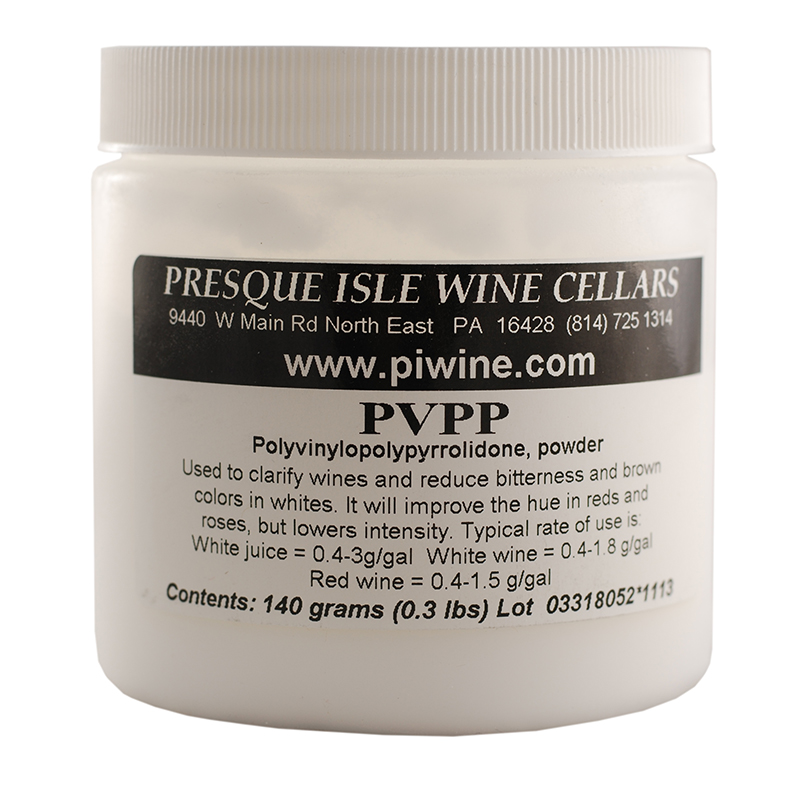PVPP: Directions for Use in Winemaking
View complete PDF version of this document HERE
Directions for Polyclar V, PVPP Use in Winemaking
Also commonly known as Polyvinylpolypyrrolidone
Polyclar V is a highly effective 100% PVPP wine stabilizer with an average particle size of around 25 microns. It is optimized for maximum, fast-acting reduction of polyphenols, such as the leucoanthocyananadins and catechins that may cause "pinking" and "browning" through oxidative polymerization. It is an inert material that presents no known acute or chronic health hazards.
Properties
- Can be added: before pre-bottling filtration, during or after tartaric stabilization, after initial clarification
- High surface area permitting maximum efficacy
Directions for use
A minimum contact time of 5 minutes is recommended. Because Polyclar V is finer than the VT version, it requires filtration for its removal by using filter media in the range of 3 to 5 microns nominal. The manufacturer mentions that the use of diatomaceous earth (DE) is a good option to ensure all of the PVPP particles are removed. Bench Trials Measure about 80 ml of distilled water then add 10 g of Polyclar V. Stir to prepare a thoroughly mixed slurry and make to volume with distilled water in a 100 ml volumetric flask. One ml of the stock solution added to 100 ml of juice/wine represents an addition rate of 1000mg/L.
Typical ranges to evaluate are:
White Juice 100 to 800 mg/L (0.8345 – 6.676 lbs/1000 gallons)
White wine 10 to 500 mg/L (0.0835 – 4.00 lbs/1000 gallons)
Red wine 10 to 400 mg/L (0.0835 – 3.338 lbs/1000 gallons)
Application Rate: White Juice = 0.4-3g/gal; White Wine = 0.4-1.8g/gal
Red Wine = 0.4-1.5g/gal
Hazard Warning: See MSDS
TTB Limit is 60lbs/1000 gallons
RETURN TO WINEMAKING 101 SHOP ALL CHEMICALS AND ADDITIVES

